As the final day of the Nato summit in Vilnius, Lithuania, winds down, GlobalData is able to examine what transpired throughout the duration of the conference. The event was full of pledges and call-outs, with nations such as Germany promising to increase their defence spending while others such as the UK, via its Prime Minister Rishi Sunak, accosted those who weren’t meeting their spending targets. This comes as only 7 of the 31 members of Nato are projected to meet the required 2% military spending pledge. In the Joint Communique issued after the first day, Nato reiterated the necessity of meeting the spending target and of its various core values. The report strongly condemned Russia and China, with the latter hosting significant naval training exercises to the south of Taiwan during the event. While the focus of the organisation remains the defence of their borders, most of the conference discourse surrounded the potential accession cases of Sweden and Ukraine.
Turkish President Tayyip Erdogan has stated that Ankara would cease blocking Sweden’s accession to Nato, after a year’s worth of back and forth regarding the harbouring and support of US-listed Kurdish terror organisations. When Finland and Sweden announced they were applying to join Nato last year, Turkey and Hungary immediately came out in protest of Sweden’s accession. Publicly, Erdogan’s concern with Swedish membership was that the country was allegedly harbouring members of the PKK, PYD, and the YPG in part due to differing legal thresholds and the categorisation of terrorist organisations. After vetoing an accelerated accession process, Turkey announced that it would support Sweden’s accession to Nato during the Madrid summit in 2022 if the country met conditions set by the Turkish government. Erdogan requested the extradition of 33 Kurdish individuals accused of terrorism by the Turkish Government, before expanding that request to include over 100 people accused of provocative protests by the Turkish Government. Though the political rift between the two nations appeared unmendable, talks between them seemed to improve in the weeks preceding the Nato summit.
After Hungary removed its objections to Swedish accession last week, Turkey announced prior to the summit that it would no longer impede the process. This came after an agreement which would see Sweden amend its constitution to expand its counter-terrorism cooperation against the PKK and resume arms exports to Turkey, as set out in the Trilateral Memorandum in 2022. Observers have linked the sudden change in policy towards Swedish accession to Turkey’s dire economic situation, with Sweden also committing to support the reinvigoration of EU projects in Turkey. With GlobalData’s intelligence indicating that year-on-year inflation was 52.6% last year and around 90% in prior years, it remains possible the Turkish government is seeking to soothe its economic woes by expanding the EU-Turkish customs market. Furthermore, Turkey seems to have also secured policy concessions from other Nato members, with the USA announcing that it would approve the foreign military sales order for Turkish F-16s, which had been placed on hold since 2020.
However, the main subject of discussion was Ukraine’s candidacy for Nato membership and the ongoing Russo-Ukrainian conflict. Nato’s communique states “Ukraine’s future is in Nato” and outlines the general political solidarity between the organisation and Ukraine. The communique also announced various new support packages including enhancements to the Comprehensive Assistance Package by making it a multi-year deal with additional political support. The new Nato-Ukraine council established by the political support package creates an opportunity for Ukraine and Nato to host multi-lateral discussions on a level playing field. Further political support came from the G7, where member states committed to continue sending military and financial aid at a consistent rate while also sharing cybersecurity information. Ukraine also received further pledges of bilateral military aid during the conference, with Germany announcing a $700m military package and the establishment of a F-16 pilot training scheme for Ukrainian pilots while France announced that it would supply Kyiv with additional SCALP-EG/Storm Shadow cruise missiles. Combined with the supply of Storm Shadow already pledged by the British government in May, Ukraine’s ability to counteract and disrupt Russian military activities across and beyond the frontline has been dramatically enhanced.
Despite this, Ukrainian President Volodymyr Zelensky was not impressed by Nato’s failure to provide a timeline for Ukrainian accession to the alliance. As reiterated by US President Joe Biden a few days prior to the summit, the alliance’s current position remains that Ukraine can only join Nato following the conclusion of the Russo-Ukrainian conflict. Germany and the US are the primary proponents of Ukrainian membership, though other member states have failed to reach a consensus leaving Ukraine in a difficult position. Tensions over the last two days after President Zelensky published tweets stating that the conditions for the invitation to Nato membership were ‘vague’ and stating that ‘uncertainty is weakness’. British Defence Minister Ben Wallace further inflamed tensions with his responses, asserting that the UK “isn’t Amazon” and implying a lack of gratitude for military support, with a similar response having been made by a senior US official. Finally, the communique indicated that Ukraine could join the Nato alliance once unspecified “democratic and security sector reforms” had been completed, with the language used having caused frustrations with the Ukrainian delegation. Zelensky was forced to rethink his position to receive the various military and political commitments before the inaugural meeting of the Nato-Ukraine council, resulting in a more positive bilateral negotiation.
See Also:
How well do you really know your competitors?
Access the most comprehensive Company Profiles on the market, powered by GlobalData. Save hours of research. Gain competitive edge.

Thank you!
Your download email will arrive shortly
Not ready to buy yet? Download a free sample
We are confident about the unique quality of our Company Profiles. However, we want you to make the most beneficial decision for your business, so we offer a free sample that you can download by submitting the below form
By GlobalData

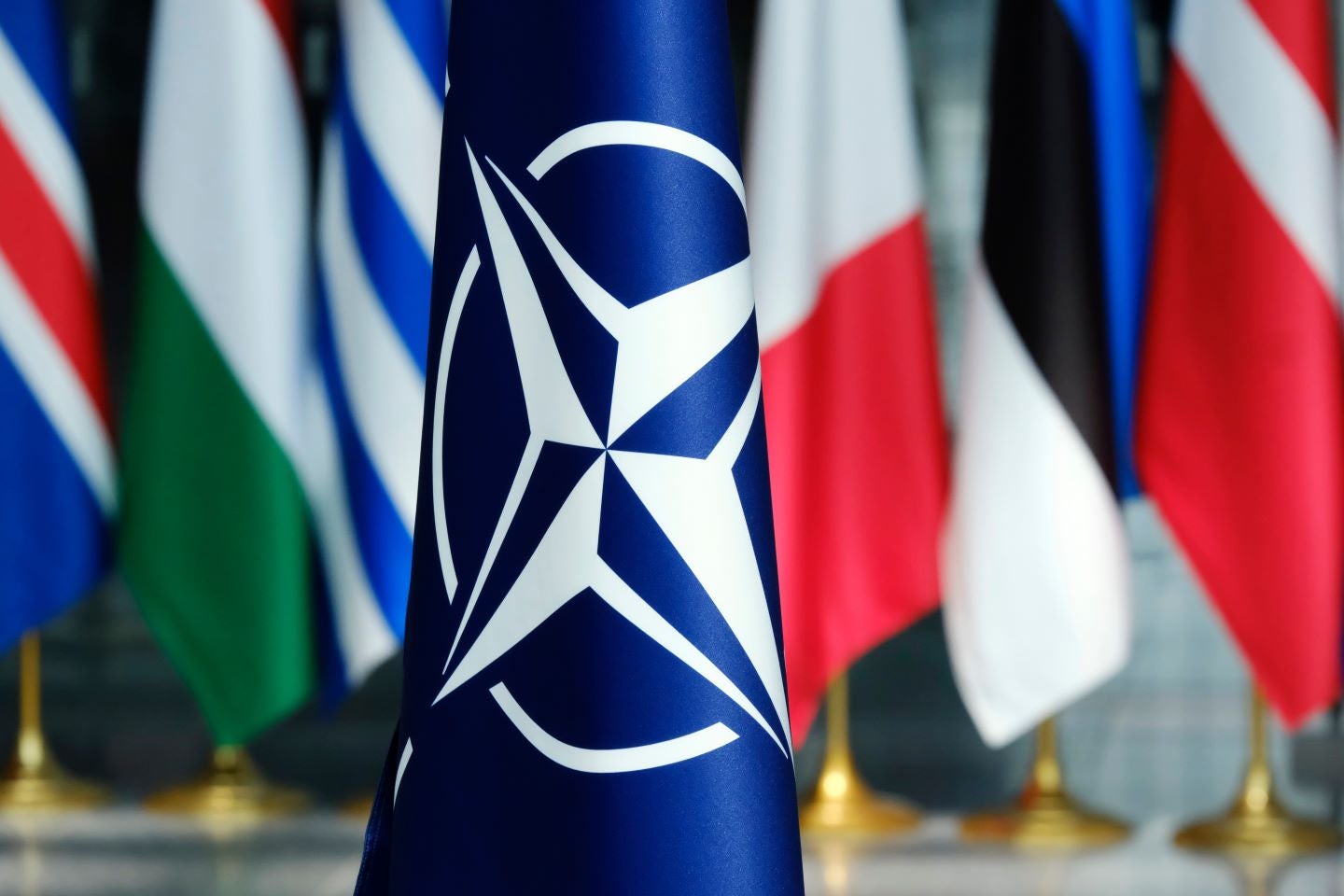


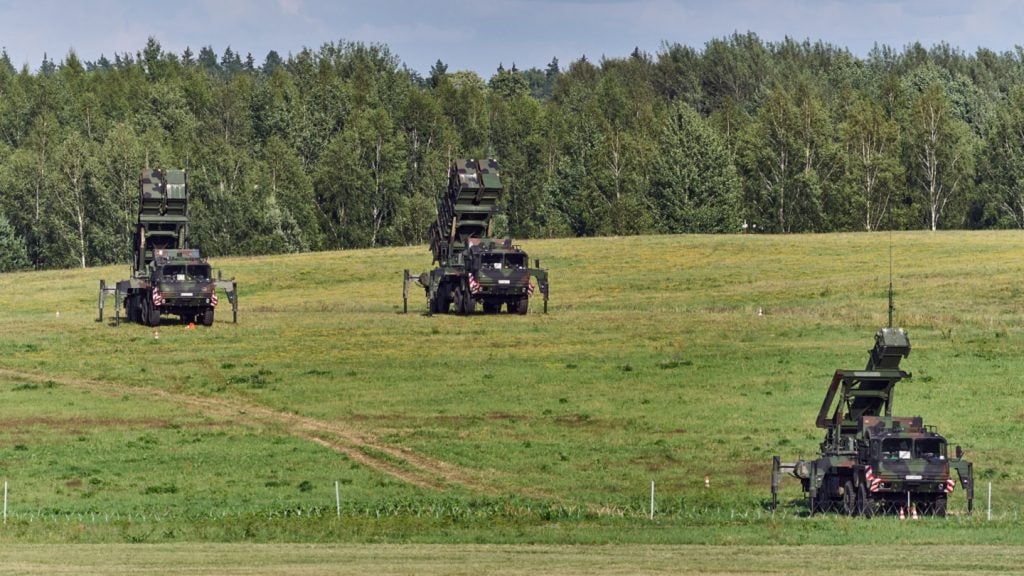
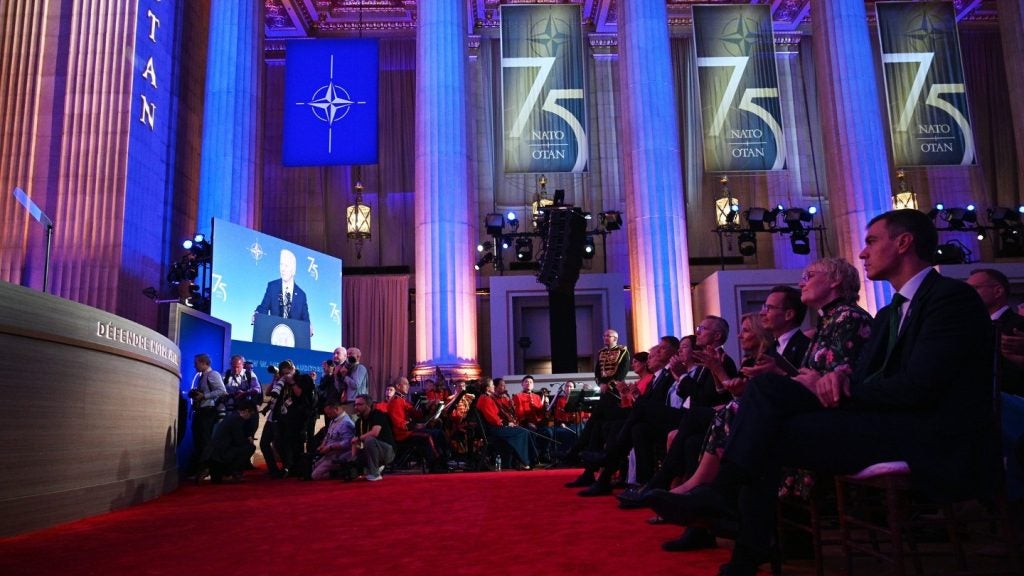
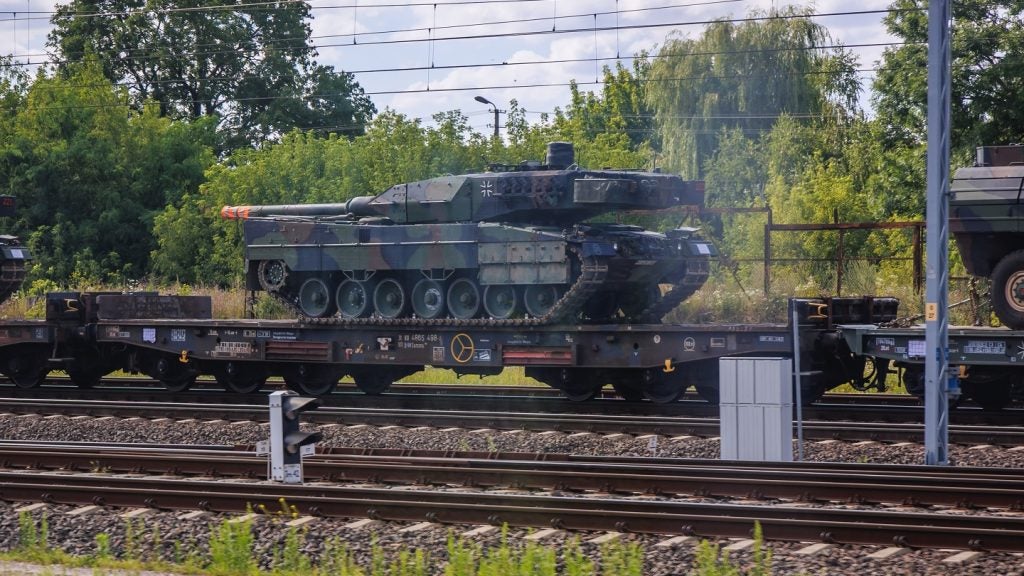
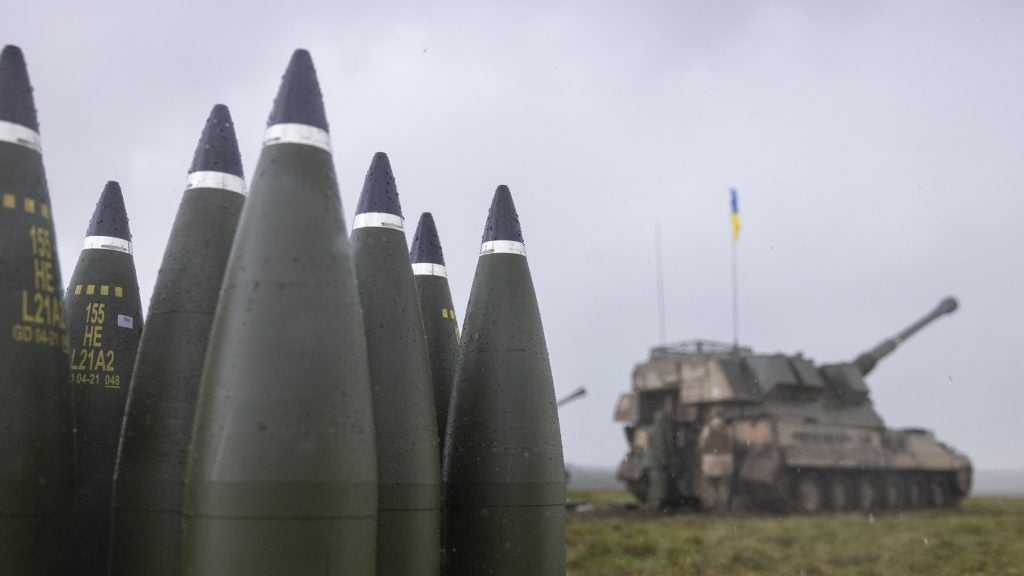

Related Company Profiles
Amazon.com Inc